In the Land of Gods: Keerti’s Journey to Uttarakhand with Thrillophilia
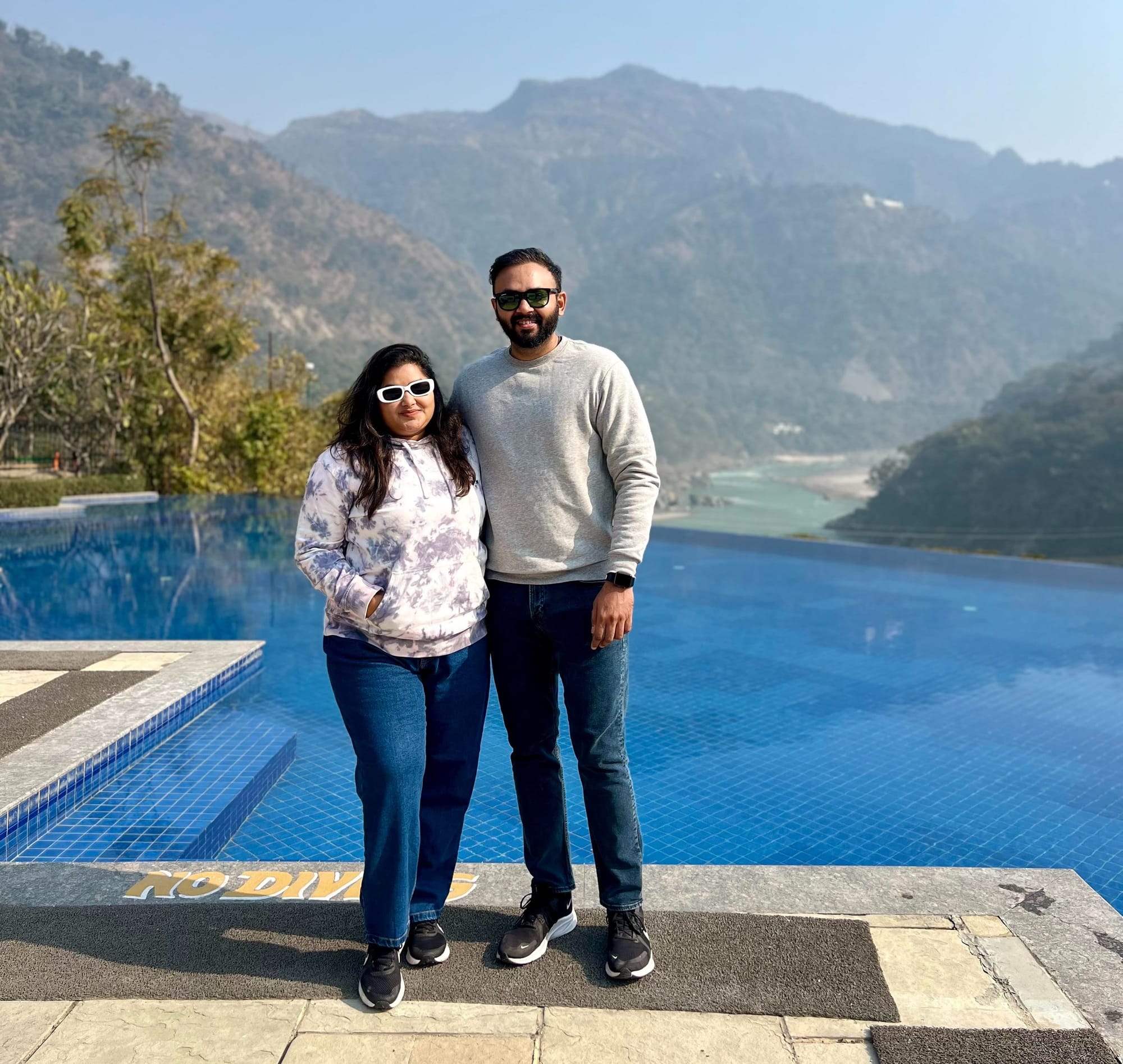
The first thing I noticed during my trip to Uttarakhand was the sound. The Ganges didn’t roar or rage; it watched over me. Standing at the edge of the river in Rishikesh, I felt its voice seep into me, calm yet resolute, like it carried stories older than time.
It was our first evening in the Devbhoomi, the Land of the Gods. Lamps floated on the water, carrying the prayers of countless souls. The air was thick with the fragrance of incense and marigolds. At Parmarth Niketan, the Aarti began—a symphony of chants and bells that resonated deep within me. I closed my eyes and let the sound wash over me, dissolving my thoughts into the river’s flow.
Later, I asked my husband, “Do you think the Ganga remembers every prayer whispered to her?”
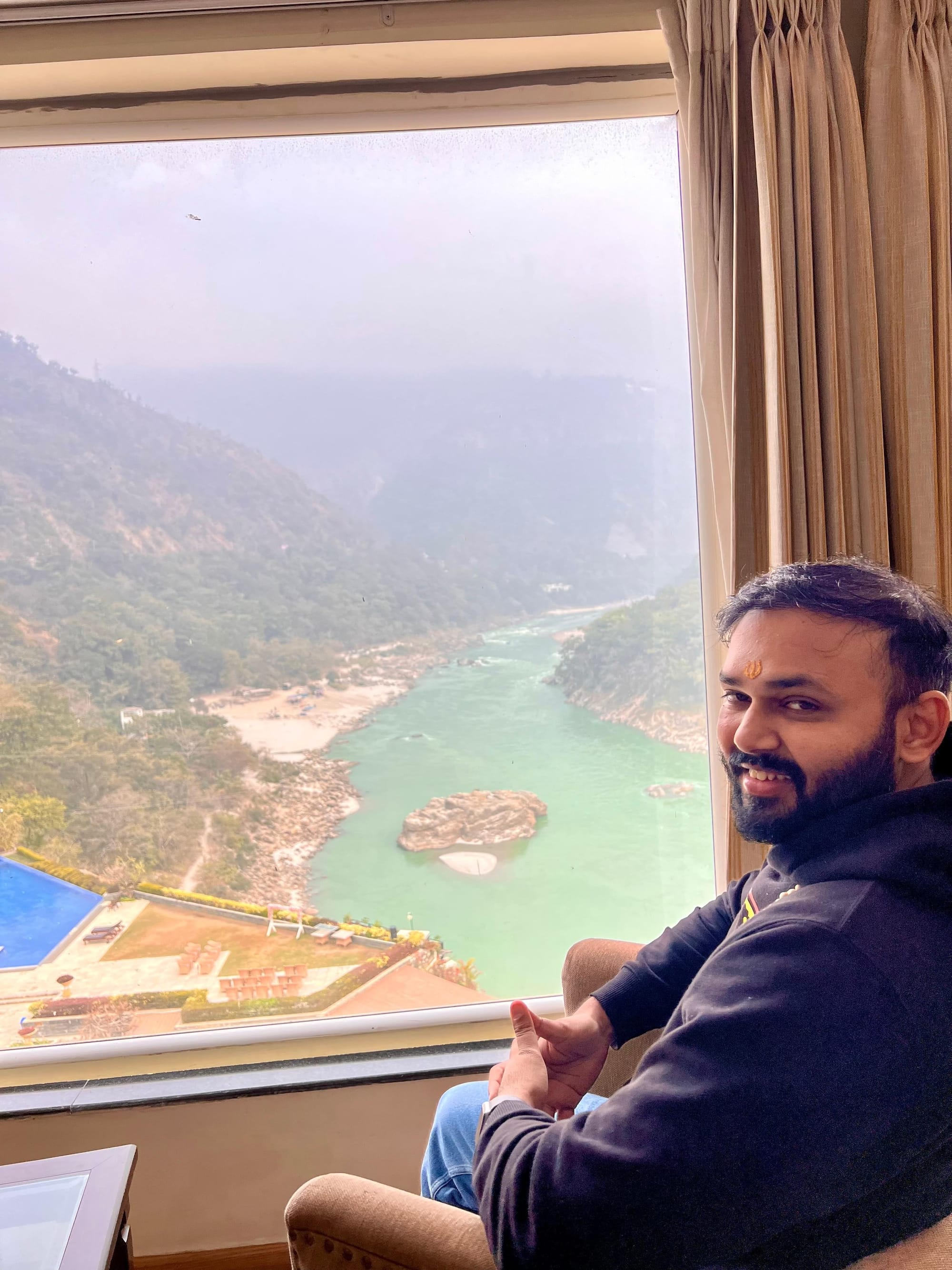
He smiled. “She doesn’t need to remember. She carries them forward.”
That night, as the Ganges flowed outside our window, I dreamed of rivers—rivers that healed, rivers that knew.
The Silent Songs
The next morning, we visited the Neelkanth Mahadev Temple, perched amidst dense forests on a hill. The temple was a riot of colors and devotion, with people offering milk and Datura flowers to Lord Shiva. I watched over the rituals, feeling an odd sense of belonging among strangers.
Later, we wandered into the Beatles Ashram. Unlike the crowded temples, the ashram was quiet, almost forgotten, but it carried a strange energy. Walls were covered with vibrant graffiti—lyrics, mantras, and scattered words of wisdom. I found myself drawn to a room with sunlight streaming through its broken roof.
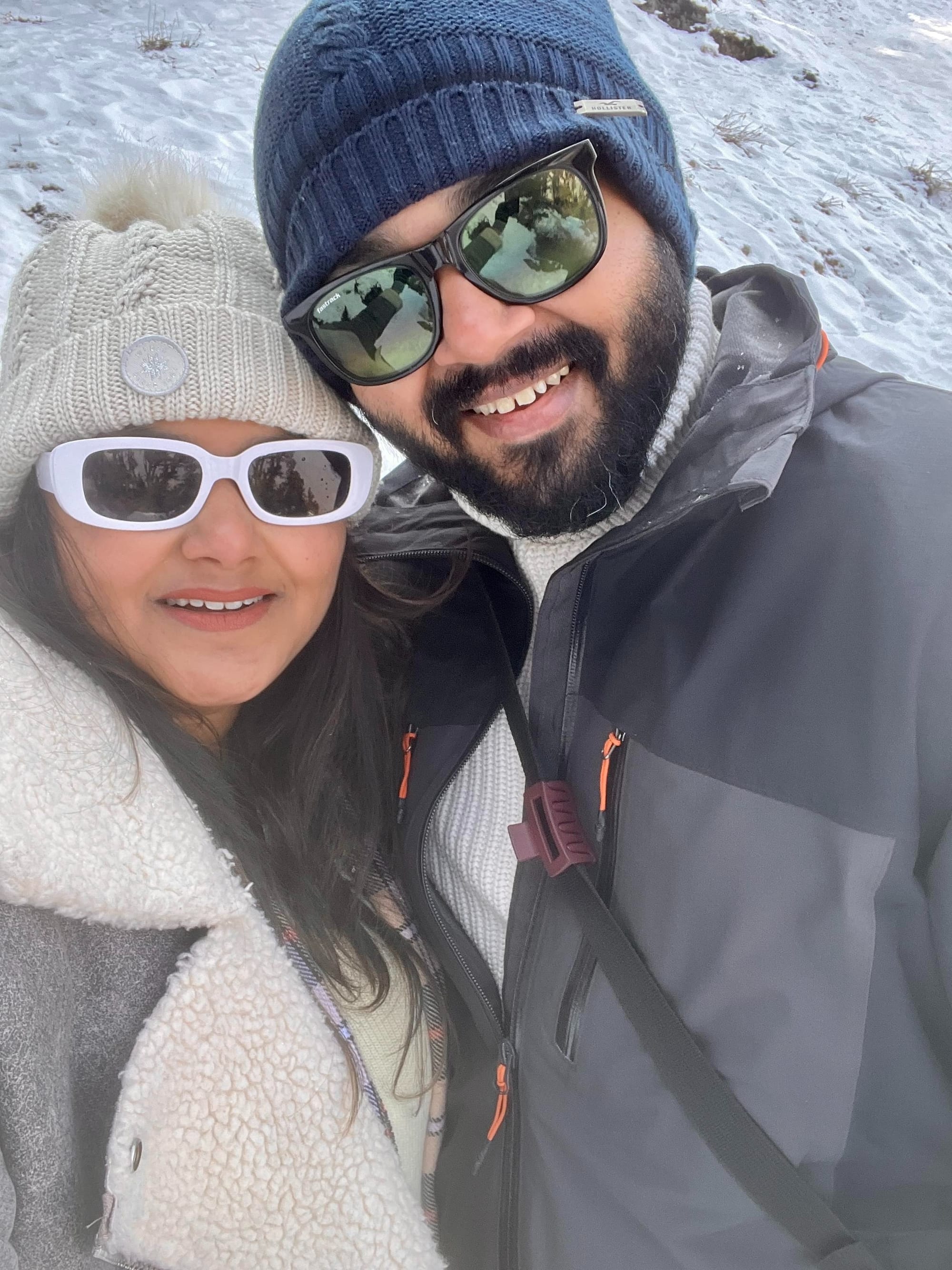
Sitting cross-legged on the dusty floor, I let my thoughts wander. “This place isn’t about music or fame,” I thought. “It’s about searching—searching for peace, for meaning.”
My husband found me there and sat beside me, saying nothing. For a long time, neither of us spoke.
The Bells of Haridwar
The following day, Haridwar greeted us with a cacophony of temple bells. The Shri Vaishno Devi Temple was our first stop—a towering shrine where pilgrims lined up for darshan. I observed the women in vibrant saris, the barefooted children, and the elderly with walking sticks. Their devotion was intense, and I could feel it from a distance.
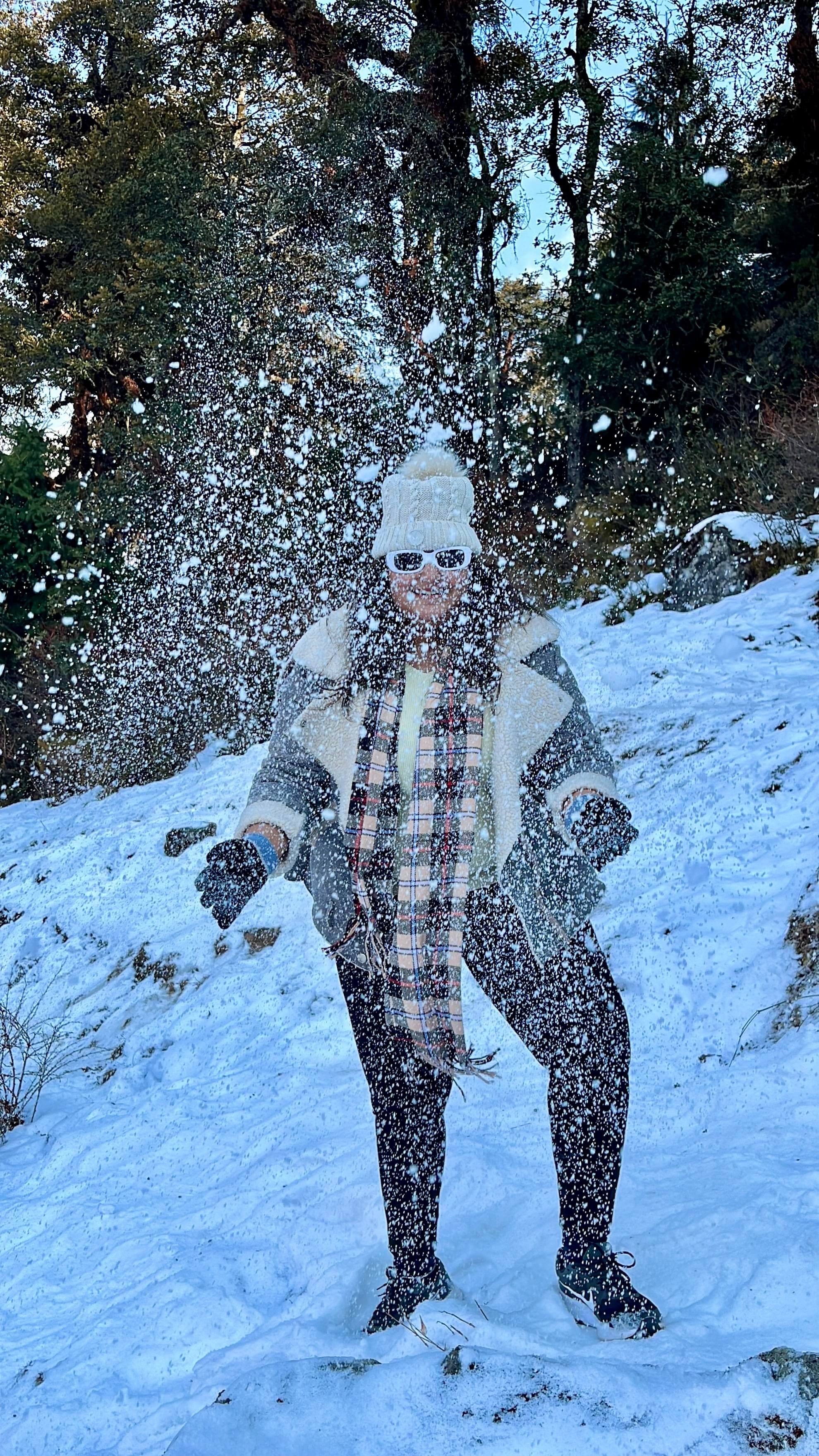
At the Bharat Mata Mandir, I marveled at the sheer diversity of our country. Each floor of the temple was dedicated to a different aspect of India—its rivers, freedom fighters, saints, and scriptures.
But it was at Har ki Pauri that I felt most connected. As the evening Aarti began, the Ganges shimmered with the light of countless floating lamps. I held my diya carefully, whispering a silent prayer before placing it on the water. I watched it drift away, carrying my hopes and gratitude downstream.
“May this light find its way to someone who needs it,” I murmured.
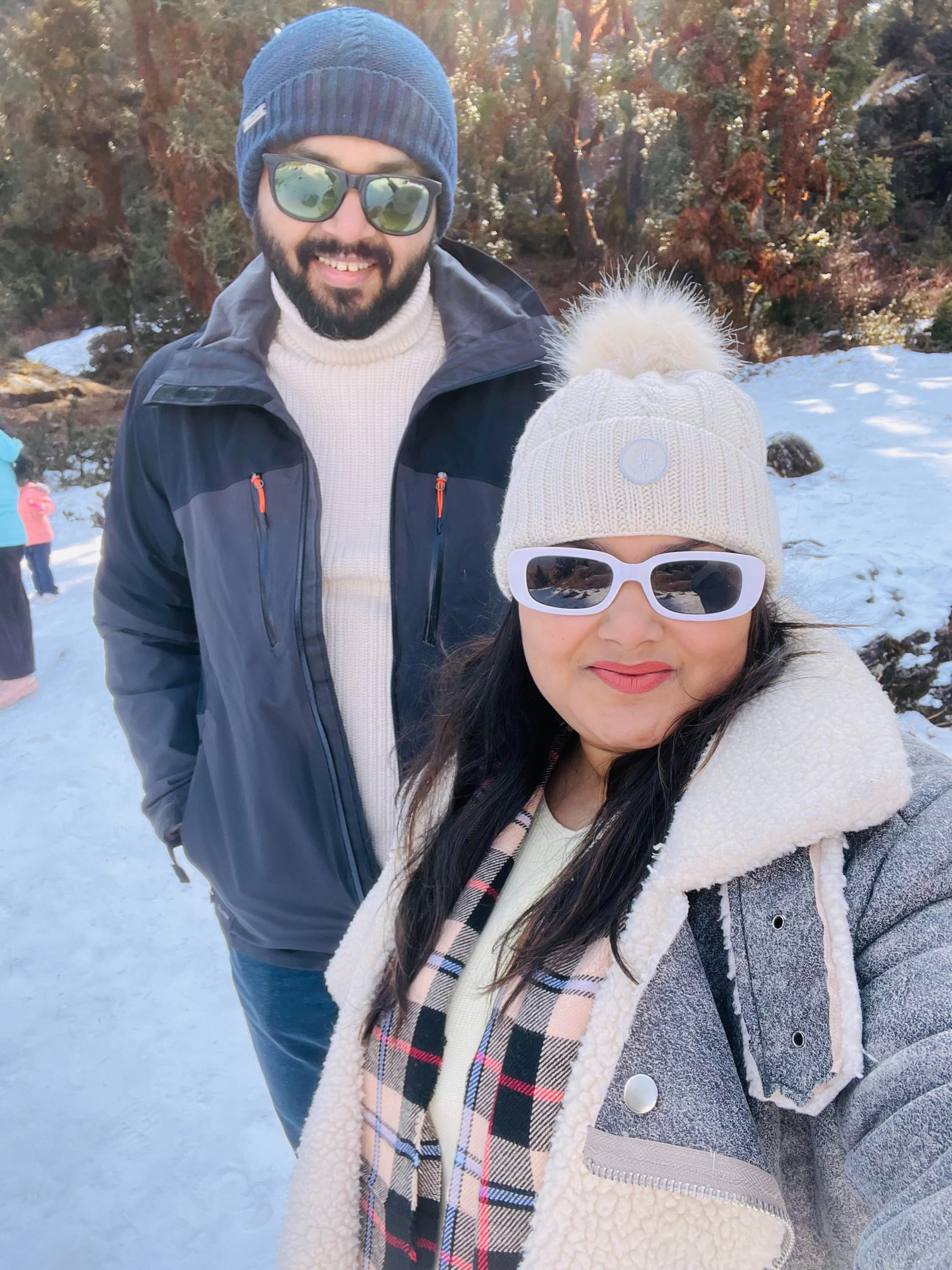
A Journey of Confluences
The road to Joshimath was long, but the journey itself was part of the experience. Our car wound through narrow roads flanked by towering cliffs and plunging valleys. Along the way, we stopped at Devprayag, where two rivers—the Bhagirathi and Alaknanda—merged to form the Ganges.
As the car moved on, we also passed Rudraprayag and Karnaprayag, each confluence carrying its own history, its own energy. By the time we reached Joshimath, night had fallen, and the stars above seemed closer, brighter.
A Quiet Meadow and a Still Lake
On our first day in Auli, we trekked to Gurson Bugyal, a meadow nestled amidst snow-capped peaks. The trek was challenging, but I felt invigorated with every step. When we finally reached the top, the view took my breath away—a vast expanse of white, framed by towering mountains.
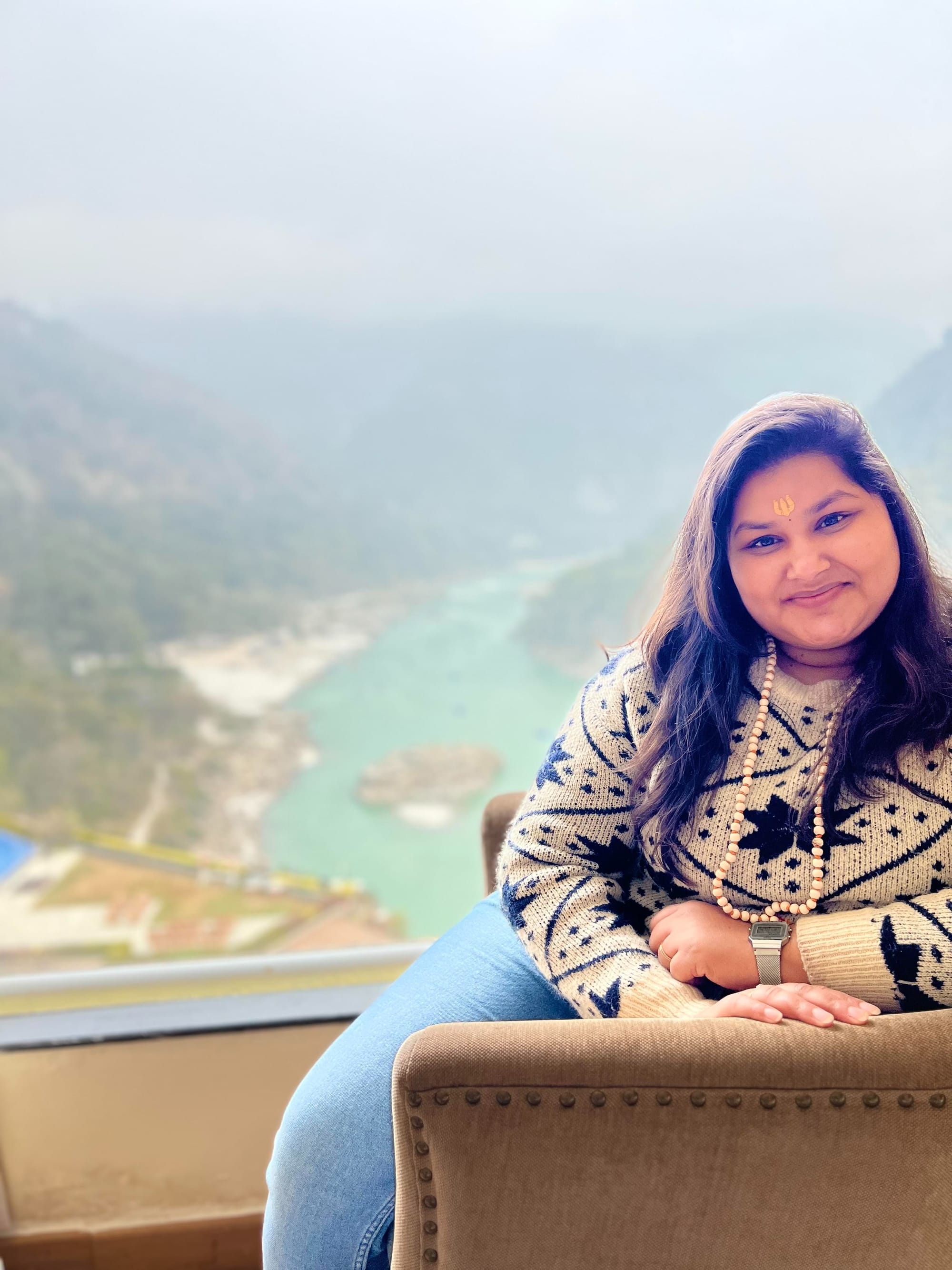
I sat down in the snow, letting the silence of the place seep into me. It wasn’t an empty silence; it was full of life, of whispers carried by the wind.
Later, we visited the Auli Artificial Lake. I sat by the edge, sketching the scene in my journal. My husband teased me about my less-than-perfect drawing, but I didn’t mind.
Planning a trip to Ladakh, Check out the Thrillophilia Ladakh Reviews
Whispers of Snow
The next morning, Auli greeted us with a blanket of snow. It was unlike anything I’d seen before—pure, pristine, and endless. We decided to try skiing, an adventure that quickly turned into a comedy of errors.
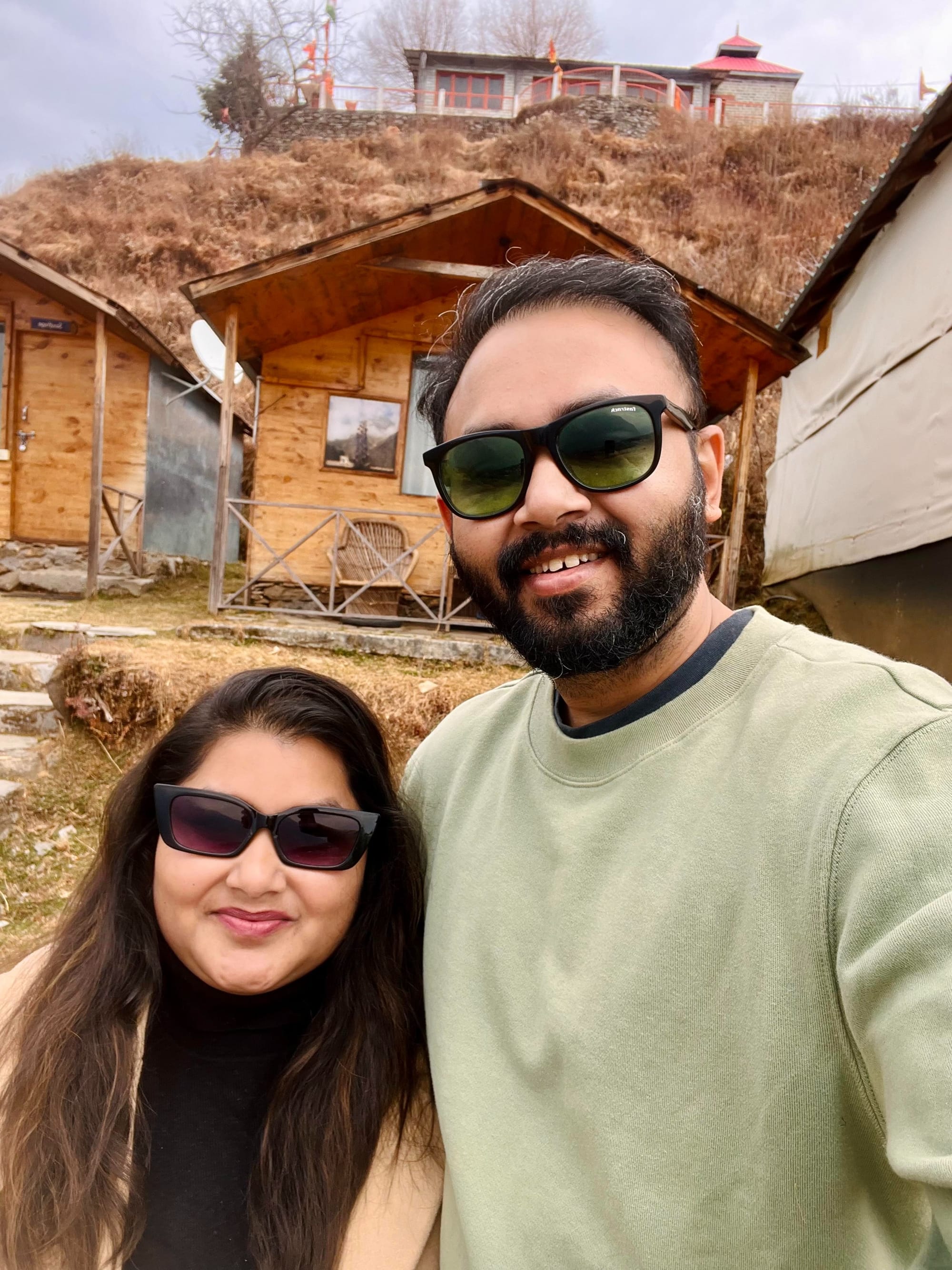
My first attempt sent me tumbling into the snow, my laughter echoing through the valley. My husband wasn’t much better, his unsteady movements drawing amused glances from the seasoned skiers around us.
By the afternoon, we had given up on skiing and found ourselves sitting on a quiet slope, watching the sun glint off the peaks. I leaned back against the snow, my breath visible in the cold air. “You know,” I said, “this is the kind of happiness you don’t plan for. It just happens.”
He smiled. “That’s the magic of these mountains. They don’t just show you beauty—they remind you to feel it.”
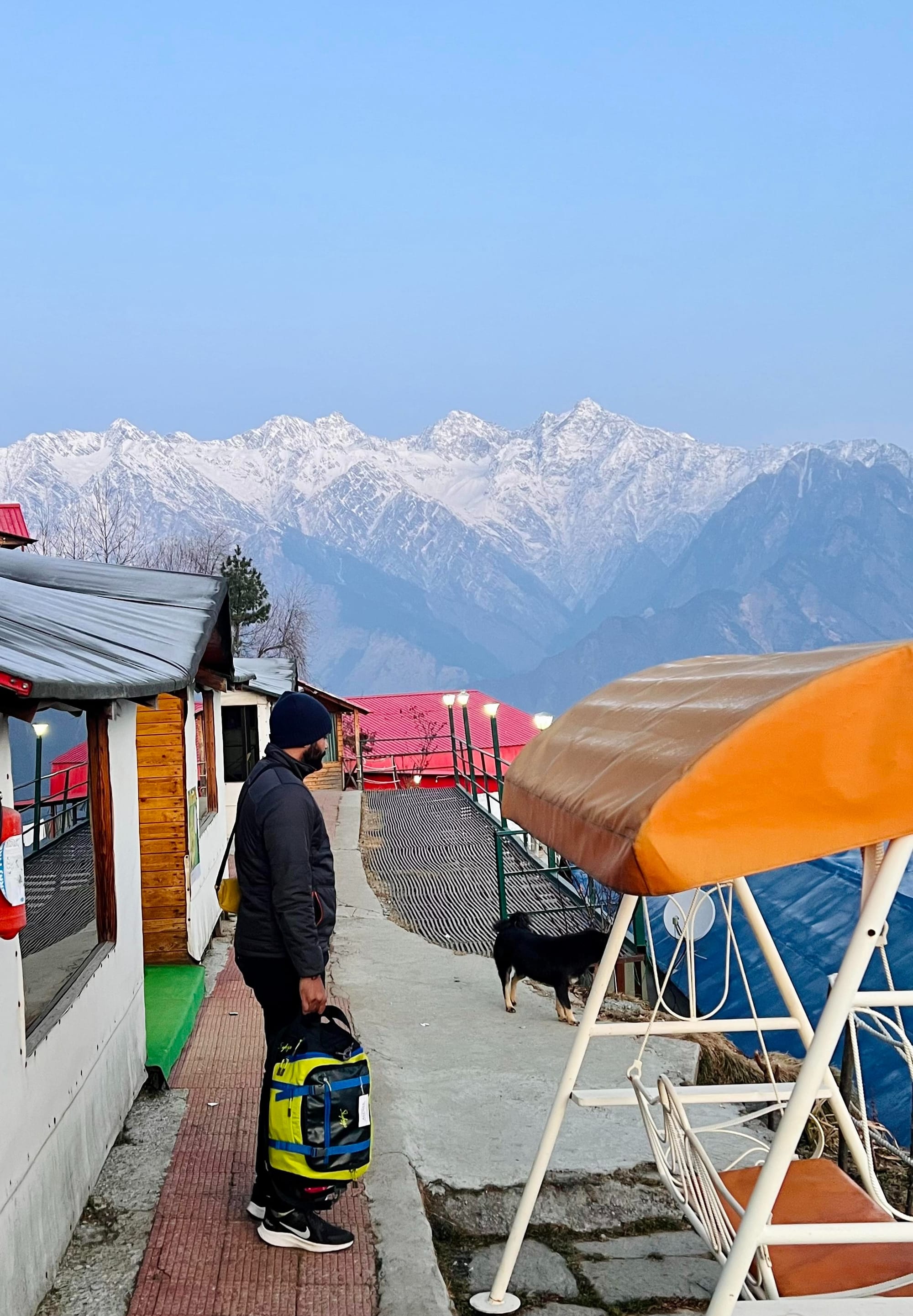
The Return
As we descended the mountains on our final day, I felt a pang of sadness. The journey back felt like leaving behind a part of myself. The mountains, rivers, and temples of Uttarakhand had left an indelible mark on my soul.
Sitting in the car, I flipped through my journal, reading the notes and sketches I had made along the way. On a blank page, I wrote:
"In the land where gods walk among men,I found fragments of my forgotten self.In the rivers, I learned to flow.In the mountains, I learned to stay."
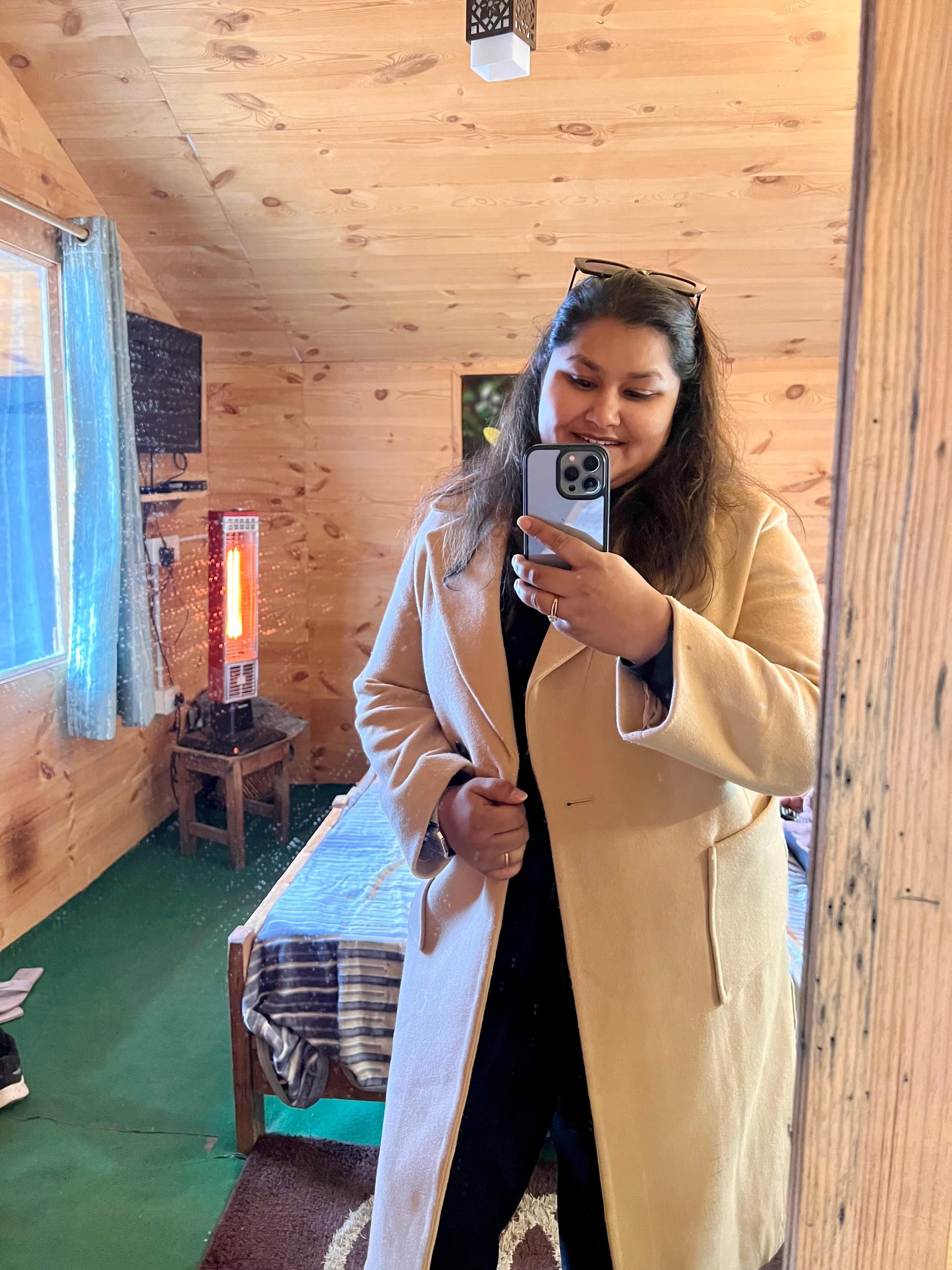
I looked out at the receding hills, a soft smile on my face. “We’ll come back,” I said. “Some places don’t just touch you—they stay with you.”
Read more: Thrillophilia Uttarakhand Reviews